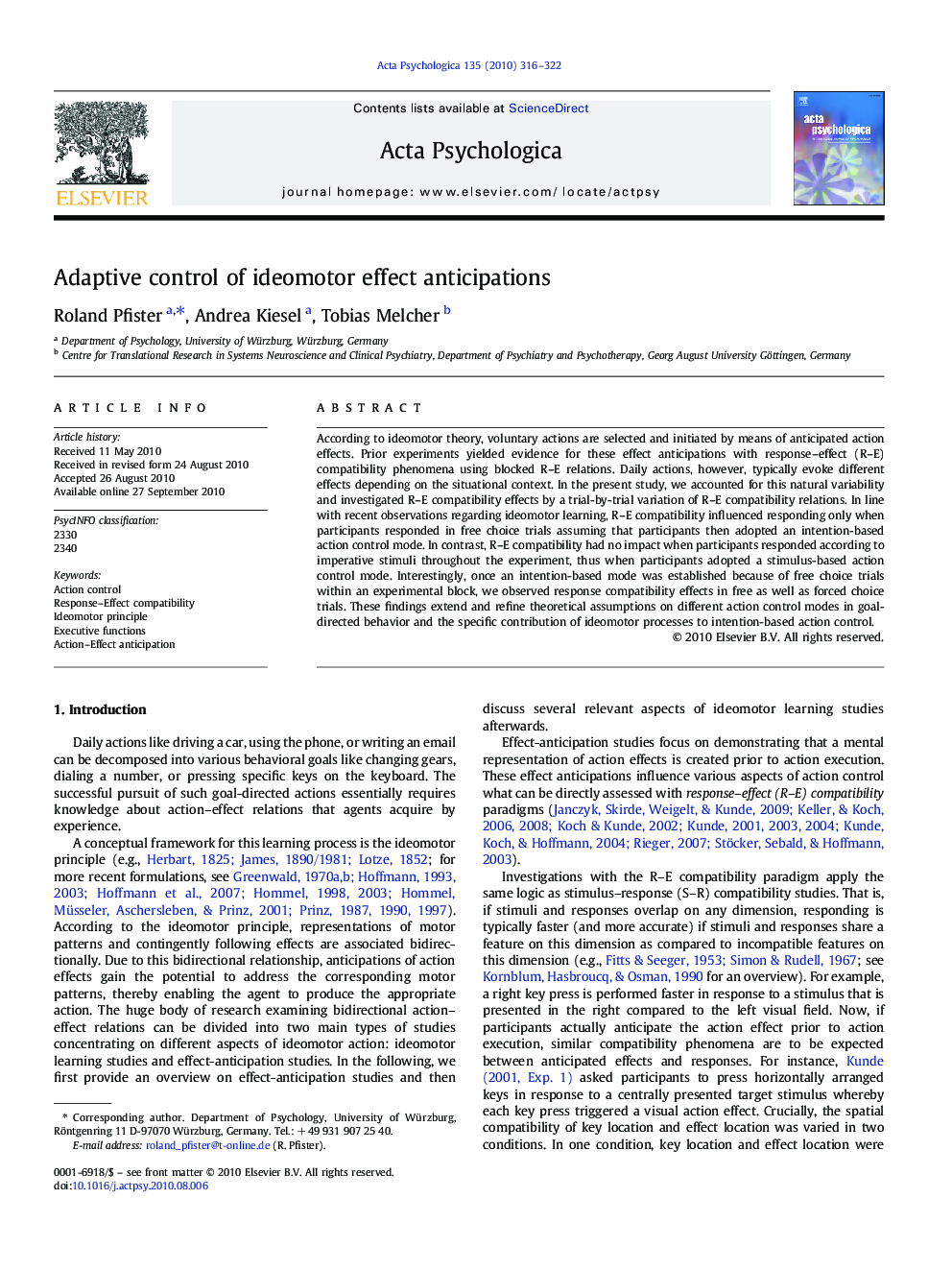| Article ID | Journal | Published Year | Pages | File Type |
|---|---|---|---|---|
| 10453877 | Acta Psychologica | 2010 | 7 Pages |
Abstract
According to ideomotor theory, voluntary actions are selected and initiated by means of anticipated action effects. Prior experiments yielded evidence for these effect anticipations with response-effect (R-E) compatibility phenomena using blocked R-E relations. Daily actions, however, typically evoke different effects depending on the situational context. In the present study, we accounted for this natural variability and investigated R-E compatibility effects by a trial-by-trial variation of R-E compatibility relations. In line with recent observations regarding ideomotor learning, R-E compatibility influenced responding only when participants responded in free choice trials assuming that participants then adopted an intention-based action control mode. In contrast, R-E compatibility had no impact when participants responded according to imperative stimuli throughout the experiment, thus when participants adopted a stimulus-based action control mode. Interestingly, once an intention-based mode was established because of free choice trials within an experimental block, we observed response compatibility effects in free as well as forced choice trials. These findings extend and refine theoretical assumptions on different action control modes in goal-directed behavior and the specific contribution of ideomotor processes to intention-based action control.
Related Topics
Life Sciences
Neuroscience
Cognitive Neuroscience
Authors
Roland Pfister, Andrea Kiesel, Tobias Melcher,
